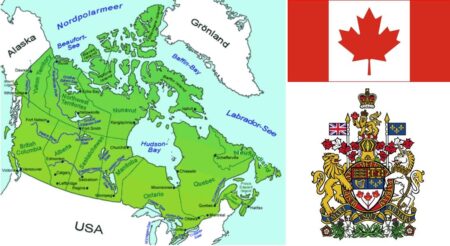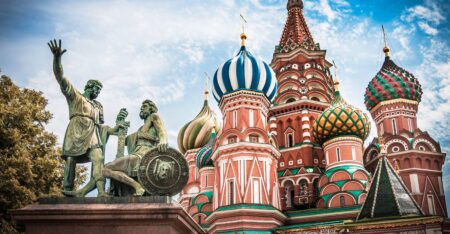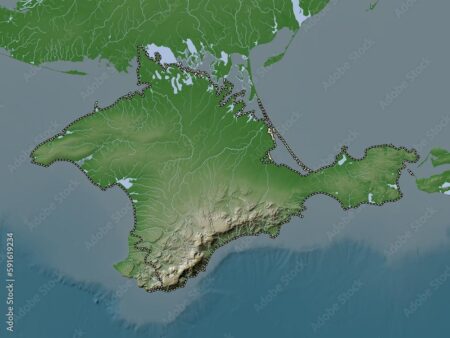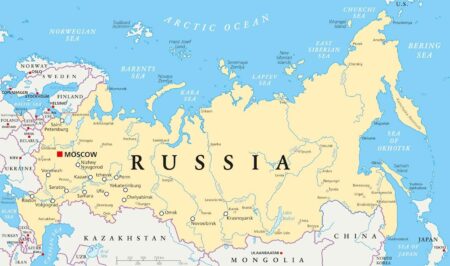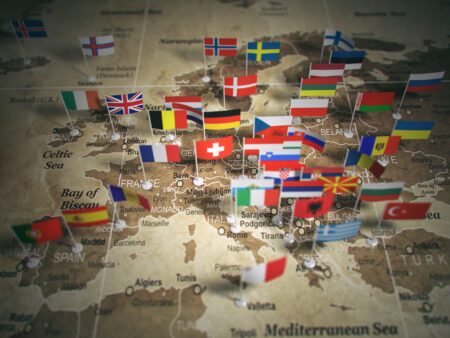A recent Al Jazeera article challenges the notion of Canada’s united front against Donald Trump, revealing a complex tapestry of political and societal divides within the nation. The article uncovers a spectrum of opinions that showcase both fervent support and vocal dissent among Canadians when it comes to U.S. policies.
Browsing: nationalism
The relationship between India and Pakistan is steeped in a rich tapestry of history, marked by conflict and rivalry. At the heart of this complex bond lie deep-seated territorial disputes and religious divides that have fueled animosity for decades. As both nations navigate the shifting landscape of global politics, the echoes of their tumultuous past resonate loudly, casting a long shadow over current tensions.
In a stirring sermon, a well-known Pakistani cleric took a bold stand against his government’s “tyrannical” policies, passionately denouncing any looming conflict with India. His thought-provoking remarks have ignited widespread conversation, shining a light on the increasing discontent surrounding government actions and international relations
In the vibrant city of Odesa, Ukraine, a passionate debate has erupted over the removal of symbols from Imperial Russia. Advocates see this as a bold move towards forging a stronger national identity, while critics contend that it threatens to erase the city’s rich cultural tapestry, further widening the rifts within the community.
In “A History Lesson in Germany: Avoiding a Return to the Worst Moments,” R. Bruce Anderson passionately highlights the vital need to remember Germany’s haunting past. He compellingly argues that grasping the lessons of historical atrocities is essential for ensuring they never happen again in our contemporary world.
Germany’s recent decision to label the far-right Alternative for Germany (AfD) party as an “extremist” group has ignited a wave of criticism from the United States. Detractors contend that this classification threatens the very essence of democratic dialogue, fueling fears of political repression and stifling diverse viewpoints
In “The Russia That Putin Made,” Foreign Affairs delves into the intricate tapestry of Moscow’s ties with the West. The article emphasizes that a pragmatic approach to engagement is crucial for fostering coexistence, shedding light on the persistent illusions that obstruct meaningful dialogue
In a bold political move, Germany‚Äôs government has officially branded far-right factions as ‚Äėextremists,‚Äô sparking fierce backlash from MAGA supporters. This classification underscores escalating worries about the surge of nationalism and its potential impact on global democracy.
Germany’s far-right AfD party is under the spotlight as lawmakers engage in heated discussions about a possible ban. With worries mounting over its extremist rhetoric and growing influence, the government is considering legal measures that could dramatically alter the political landscape.
In the wake of a tragic attack in Kashmir, the already fraught relationship between India and Pakistan is reaching new heights of tension. As the situation unfolds, there are growing calls for urgent dialogue to prevent further escalation. Experts caution that without immediate action towards peace and reconciliation, this incident could plunge the region into deeper instability.
Thousands of passionate demonstrators flooded the streets of Germany over the weekend, as populist groups united to challenge government policies. In a powerful display of civic engagement, counter-protests sprang up, highlighting the profound political divide within the nation as citizens boldly express their dissent
In the aftermath of a recent attack in Kashmir, a troubling trend has surfaced: hate-fueled songs aimed at Indian Muslims are spreading rapidly across social media. These inflammatory tracks are not just music; they are stoking divisions and inciting violence in an already charged environment.
Crimea has become a focal point in the ongoing dialogue surrounding the resolution of Russia’s war in Ukraine. Its strategic position, rich history, and abundant resources render it an invaluable asset, shaping not only diplomatic negotiations but also military tactics on both sides.
Amid a remarkable rise in the popularity of MAGA hats, a growing number of Australians are voicing their admiration for Donald Trump. Enthusiastic supporters highlight his no-nonsense style, impactful economic policies, and bold nationalistic rhetoric as captivating traits that strike a chord even far beyond U.S. shores
Pierre Poilievre’s recent remarks on immigration have ignited a lively debate, yet they seem to miss the mark when it comes to Canada’s rich tapestry of diversity and inclusion. Detractors contend that his viewpoint overlooks the essential role immigrants play in shaping the nation’s growth and fostering unity.
Amid rising tensions, Russia’s influence is weaving a complex tapestry that extends well beyond its borders. Through shrewd alliances, economic maneuvering, and deep-rooted cultural connections, it is crafting a hidden empire. This growing reach presents formidable challenges to global stability and the delicate fabric of international relations
As Britain charts its course through the complex waters of post-Brexit trade negotiations, the allure of striking a deal with the Trump administration poses a significant challenge. Experts caution that yielding core values in exchange for economic benefits could jeopardize the UK’s esteemed global reputation and ethical integrity.
As political tensions escalate in the U.S., an increasing number of American Jews are looking to Canada for solace. With worries about the lasting effects of the Trump era on their communities, many are considering this welcoming northern neighbor as a sanctuary for their families.
Italy’s Giorgia Meloni exemplifies the challenges of moderating Europe’s far-right movements. Despite attempts to present a more palatable image, her government‚Äôs actions reveal the enduring appeal of nationalist rhetoric, threatening EU cohesion.
French President Emmanuel Macron announced that France may recognize a Palestinian state by June, signaling a potential shift in diplomatic relations. This move aims to revive the stalled peace process and support Palestinian statehood in the ongoing conflict.

